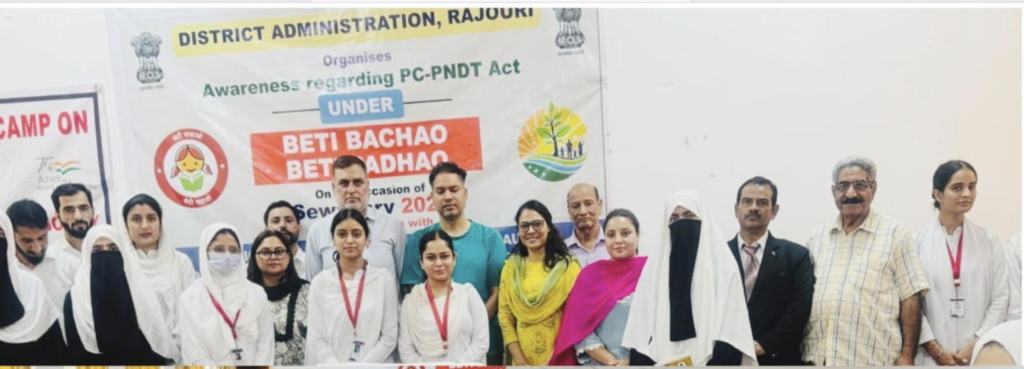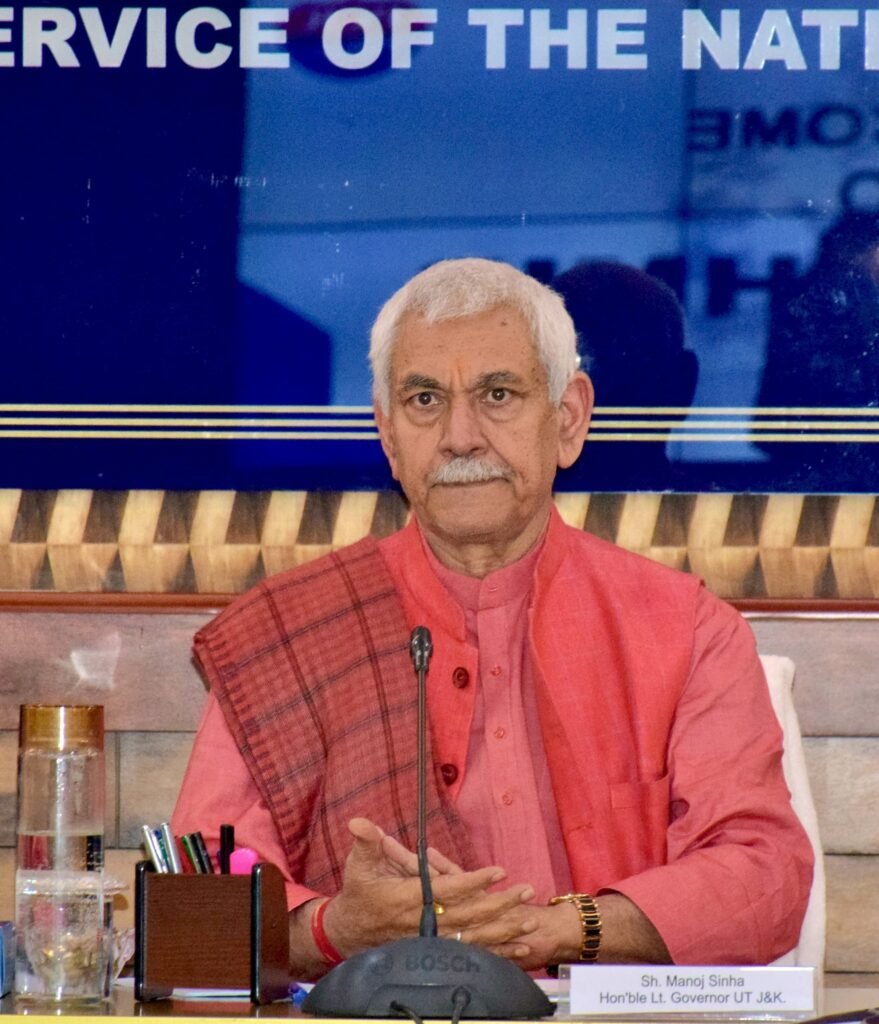Rajouri, September 24, 2025* – In a proactive step toward curbing gender-based discrimination and promoting the girl child, the Social Welfare Department Rajouri organized an awareness programme on the Pre-Conception and Pre-Natal Diagnostic Techniques (PC-PNDT) Act under the flagship Beti Bachao Beti Padhao (BBBP) scheme, on the directions of Deputy Commissioner Abhishek Sharma. The event, held at the historic Dak Bungalow in Rajouri, engaged a diverse audience of community members, health workers, educators, and local leaders, fostering discussions on the Act’s role in preventing female foeticide and ensuring equitable sex ratios in the district.The programme, aligned with the national BBBP initiative launched in 2015 to address declining child sex ratios and empower girls across their life cycle, featured expert-led sessions on the stringent provisions of the PC-PNDT Act, including mandatory registration of diagnostic centers, bans on sex determination, and penalties for violations. Coordinated by District Social Welfare Officer Rajouri, the half-day event included interactive Q&A forums, street plays, and distribution of informational pamphlets, emphasizing enforcement mechanisms and community vigilance. Over 150 participants attended, reflecting strong grassroots involvement in this border district’s push for gender justice.
Key Highlights of the Awareness Programme
- Educational Sessions on PC-PNDT: Resource persons from the Health and Social Welfare Departments elaborated on the Act’s 1994 origins and amendments, highlighting real-life case studies from Jammu and Kashmir to illustrate its impact on curbing illegal practices and promoting ethical prenatal care.
- Community Engagement Activities: Street plays and role-playing skits dramatized the consequences of sex-selective abortions, while group discussions encouraged pledges for reporting violations. Special focus was placed on sensitizing ASHA workers and Anganwadi staff for frontline advocacy.
- Integration with BBBP Goals: The event underscored BBBP’s tri-ministerial approach—encompassing awareness campaigns, multi-sectoral actions, and capacity building—tying into recent district efforts like self-defense training for girls under the scheme.
Deputy Commissioner Abhishek Sharma, who issued directives for the programme, commended the department’s efforts in a statement: “Enforcing the PC-PNDT Act is crucial for realizing a balanced society where every girl child is valued and protected. Under Beti Bachao Beti Padhao, such initiatives will continue to drive behavioral change in Rajouri.” Participants echoed the call, with one local educator noting, “This awareness is a wake-up call—let’s make Rajouri a model for gender equality.”
BBBP and PC-PNDT in Jammu and KashmirThe BBBP scheme, a collaborative effort by the Ministries of Women and Child Development, Health and Family Welfare, and Education, has operationalised district action plans across Jammu and Kashmir, with Rajouri actively participating through events like the recent five-day self-defense training for 75 girls concluded on September 22. The PC-PNDT Act remains a cornerstone of these efforts, with the Union Territory reporting improved sex ratios from 889 (2011 Census) to over 930 in recent surveys, thanks to sustained enforcement and awareness drives. Amid national campaigns like Seva Parv 2025, Rajouri’s programme aligns with broader goals of women’s empowerment and family resilience, building on health camps and skill programs in the region.Social media amplified the event’s reach, with posts from @rajouriauthority and local influencers sharing highlights under hashtags like #BetiBachaoBetiPadhao and #PCPNDTAct, garnering widespread support. As Rajouri advances its gender-sensitive agenda, such programmes signal a committed stride toward a more inclusive ‘New Jammu and Kashmir,’ where the girl child thrives unhindered.











